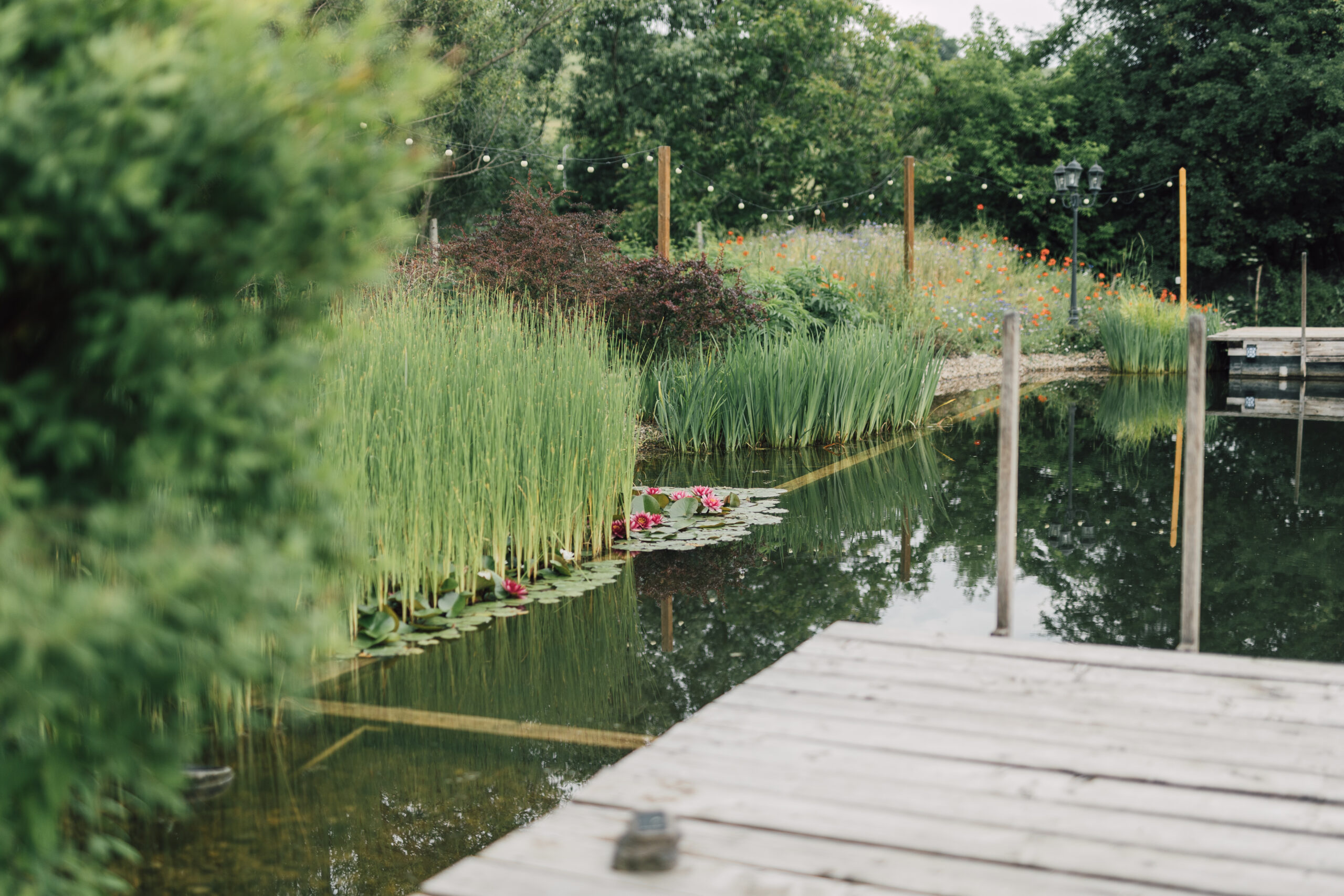In our increasingly modern world, energy consumption and human activities have a profound impact on the environment. From the way we build our homes to the choices we make in our daily lives, each action can either harm or help the planet. As we face the challenges of climate change and biodiversity loss, it’s essential to recognize the relationship between our energy use, the environment, and how we can make sustainable choices that foster positive change.
What Are Natural Pools?
Natural pools, also known as man-made swimming ponds, are a sustainable alternative to traditional swimming pools. Unlike conventional pools, which rely on chemicals like chlorine and energy-intensive pumps to keep the water clean, natural pools use biological filters and plants to keep the water crystal-clear. So how do they do it? These pools mimic the natural processes of a pond or lake, where plants and beneficial microorganisms work together to purify the water. The result is a beautiful, eco-friendly swimming space that harmonizes with the surrounding environment.
The Environmental Impact of Traditional Pools
Making the switch from traditional swimming pools may seem unnecessary. After all, why bother making a natural pool when the old fashioned ones can do the trick as they are? Pools can be great but they can come with significant environmental costs that extend far beyond their initial price.
To start off, the construction process alone demands large amounts of concrete—a material notorious for its substantial CO2 emissions—as well as additional resources like piping, plaster, heaters, and pumps, all of which consume enormous amounts of energy and resources. Once built, these pools then require thousands of gallons of water to fill, placing tremendous pressure on local water resources.
The environmental impact doesn’t end there. Maintaining a traditional pool involves the regular use of chemical disinfectants and substantial energy to heat the water and power filtration systems. Over time, these factors contribute to water pollution, increased energy consumption, and a higher carbon footprint. Not to mention that the chemicals used in pool maintenance can disrupt local ecosystems, preventing plants and animals from thriving and erasing the biodiversity that once existed in your backyard.
The Benefits of Natural Pools
Natural pools, on the other hand, offer the same luxury and relaxation as a traditional pool while delivering significant environmental benefits. Because they rely on plants and natural filtration systems, they don’t require harmful chemicals, making them safer for both swimmers and the ecosystem. The plants used in natural pools not only purify the water but also provide a habitat for wildlife, promoting local biodiversity. Natural pools can even be designed to blend seamlessly with the landscape, creating a visually stunning and environmentally friendly feature in your backyard. With reduced energy and water usage, natural pools are a smart choice for those who want to enjoy a fun and relaxing swimming experience without compromising on sustainability.
Why Choose a Natural Pool Over a Traditional Pool?
There are many reasons to opt for a natural pool over a traditional pool. To start off, building a natural pool can be more economically beneficial in the long run compared to a traditional pool. While the initial setup might be similar in cost, the ongoing maintenance expenses are significantly lower. Natural pools require fewer resources to maintain, as there’s no need to purchase chemicals or pay for high energy consumption. Even the long-term value of a natural pool can be higher due to its low environmental impact and the growing demand for eco-friendly living spaces.
Curious about how you can make more environmentally conscious choices? Visit Smart Energy Education to learn more about how our choices can hurt or benefit the environment. Explore engaging careers in the energy sector and discover how you can create a more positive future!


